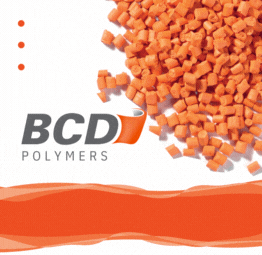The market for PVC-free closures has undergone enormous growth in recent years. And requirements have become increasingly more detailed. Of the 16 billion Twist-Off® seals currently used in the EU, at least 20 percent are now PVC-free – with an annual growth of approx. 30 percent. Numerous high-performance plants have been installed which are capable of covering the growing demand in Europe. More and more manufacturers of seals have also invested in PVC-free technology with the result that the available capacities are continuing to grow. A further increase to more than five billion Twist-Off® seals is anticipated in 2022.
In the course of this development and the increasing demand for PROVALIN® 1241 in particular, a wide range of different capping machines with various capping conditions is now available on the market, some of which make different demands on the compound used, e.g. because faster machines are used, various steam pressures or capping forces are present etc. Permissible tolerances in the glass neck dimensions as well as the overall container (such as overall height, axial deviation etc.) can also result in different processing behavior during the capping process.
The newly-developed PROVALIN® 1242 meets these new requirement profiles, as it has a higher resistance to mechanical and thermal stress and is softer compared to PROVALIN® 1241.
Capping requires pre-dampening of the closures, i.e. the glass and the closure are brought together in the machine head in a controlled vapor atmosphere. On the one hand, the steam creates an initial vacuum. But it also causes a softening of the sealing compound in the closure, which becomes visible in a permanent impression of the glass mouth after closing and reopening, depending on the temperature effect and time. This embedding of the glass mouth in the sealing compound over the full circumference ensures the tightness of the packaging system during its shelf life.
That said, a deviation during vapor deposition can have negative consequences.
If the preheating is too low, which can occur with very fast sealing machines, for example, this can lead to an insufficient impression of the compound and insufficient embedding on the glass mouth. This, in turn, harbors the risk of vacuum loss.
In the case of excessive preheating, which can happen when the closing process is interrupted, for example, there is a risk of the compound impression being too high, which can then cause cut-through.
Accordingly, a compound is required which displays a higher degree of softness accompanied by a higher degree of thermal stability.
The fact that PROVALIN® 1242 is softer, thereby permitting faster embedding on the glass neck finish (this is necessary for faster capping machines in particular), as well as displaying a higher degree of thermal stability enabling the use of higher pasteurization temperatures and minimizing the risk of cut-through, has been proven in various test set-ups.
The glass jars were sealed with variants of sealing force and steam pressure (without post-treatment), whereby worst-case scenarios were also included in order to underline the performance of the compounds.
The results show that even in the worst-case scenario, the residual thickness of PROVALIN® 1242 remains within an acceptable range.
The opening values were also examined and show that they are at a good level for both PROVALIN® 1241 and 1242.
Conclusion
With its significantly extended processing window, PROVALIN® 1242 offers the following benefits:
Easier changeover on the capping lines, as PROVALIN® 1242 behaves similarly to PVC during capping
A significantly reduced risk of cut-through, even in a worst-case scenario
A broader thermal treatment range for pasteurization up to 98 °C
A softer compound for faster embedding on the glass neck finish – particularly for faster capping machines
Accordingly, Actega has once again proven itself to be a pioneer in the development of both sustainable and practical solutions.
PROVALIN® was developed on the basis of corresponding EU specifications (EU 10/2011 and PIM), for example. Where the original focus was on food with fatty contents as they leach out the plasticizers usually contained in PVC sealing compounds and allow them to migrate into food, fillers of organic products attaching particular importance to an ecological overall package changed over to PVC-free at an early stage.
Meanwhile, the issue has far surpassed the organic sector and can now be found in practically all areas of food.
What started off as a niche range is now a firm component of the market. But the market is continually evolving, as indicated by the development of PROVALIN® 1242. New challenges can present themselves at any time, e.g. on the part of the filling industry. Or on the regulatory side, e.g. if materials such as additives in food contact are re-evaluated by the FDA or the EU. These are all key incentives for innovation; for new developments that give the bottler benefits such as better manageability, broader application possibilities, the elimination of uncertainties regarding regulatory issues, and much more.


